#more things from my drafts!
Explore tagged Tumblr posts
Text
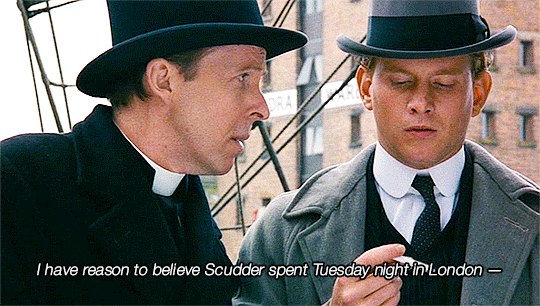
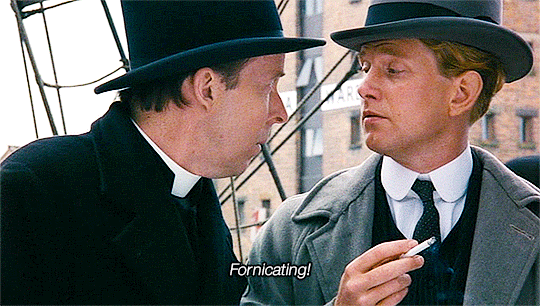
He has been guilty of sensuality........ with women.
#maurice 1987#e. m. forster#maurice (1987)#maurice#more things from my drafts!#still somewhat unhappy with the font and the speed of the gifs#but i also feel like sharing this#this has got to be one of the funniest moments in cinematic history#maurice's face#and istg the way he says fornicating#i am in tears just thinking about this#emf#film#*
96 notes
·
View notes
Text

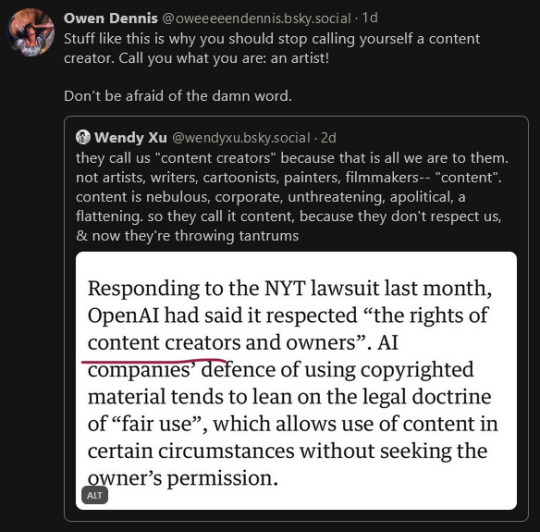
"content creator" is a corporate word.
we are artists.
#anti ai#fuck ai#artists on tumblr#please do not call me or any artist a content creator#i'm an artist. a fanartist. a designer. but not a content creator#ai clowns in my replies will be deleted and blocked without response so do not waste your breath#you are not an 'artist' for generating an image any more than you are a chef for ordering from a restaurant. someone Else did the work.#owen dennis just deleted all his blue sky stuff again and i hate that he does that because he makes such interesting comments#about the entertainment industry lmao i need to just. start screenshotting every smart thing he says#anyway thats why i decided to finally make this when its been sitting in drafts for a few months#owen dennis#edit - if you dont know who owen dennis is he's the creator of one of the best animated series of the last 20 years (Infinity Train)#he's very open about talking about art and the entertainment/animation industry on social media and in his newsletter and hes so cool 4 it
9K notes
·
View notes
Text

Woah, new character! She seems...nice?
Bug Fact: Cockroaches can hold their breath for up to 45 minutes, even when in a complete vacuum.
V2 First || Prev // Next
Volume 2 Masterpost
▴♥︎▴ Patreon ▴♥︎▴ Buy Me A Coffee ▴♥︎▴
#I'm glad to introduce Sam from my first rough draft for Volume 2! I've changed a few things about her. But she's still as sassy as ever.#im excited to write and draw for her more!#Ghost has been CAPTURED.#Dewi's Adventures in Hollow Knight#Dewi's Adventures in Hollow Knight V2#hollow knight humans#hornet hollow knight#ghost hollow knight#my art#dewi#comic#hollow knight au#Lilybug Comics#art#Hollow Knight#hollow knight fanart#hk fanart#hollow knight comic#hollow knight art#hk art#hk au
2K notes
·
View notes
Text
Some Bumblebee and mother Ratchet :)










I dont know if that's the artstyle but is Ratchet crying?? That's kinda sweet if he is 😭

Here's some G1 shots where it's just them cause I'm a sucker for these 3



#yep 3 bumblebee posts in a row#he and optimus were the only autobots on my top ten fav transformers list for the longest time until ratchet came along#i drafted a fic of ratchet adopting bee then suffering happened#and then i was like 'damn sorry for doing that to you ratchet at least i like you alot more now'#shipping him with optimus was probably the thing that sunk him into my brain#I probably know the most ratchet lore out of any transformer#he went from a 'yeah hes pretty cool background character ig' to '5th or 4th most favorite transformer character of all time' so fast#ratchet#bumblebee#official content#transformers
1K notes
·
View notes
Text
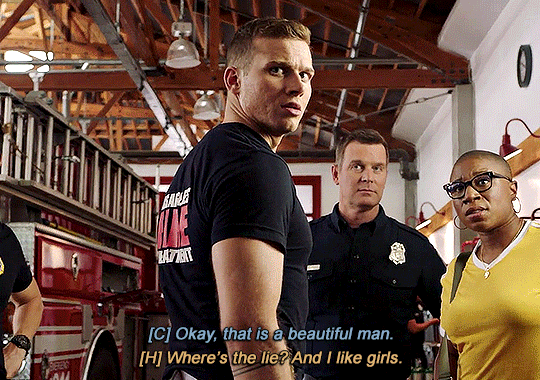



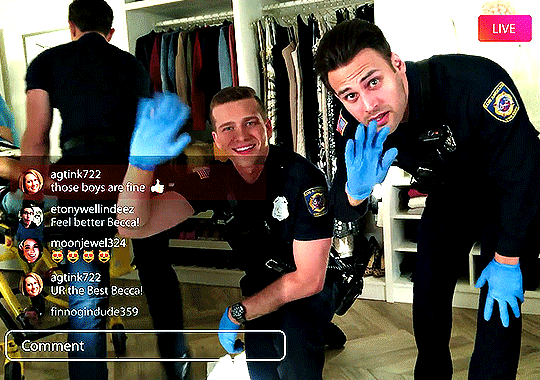
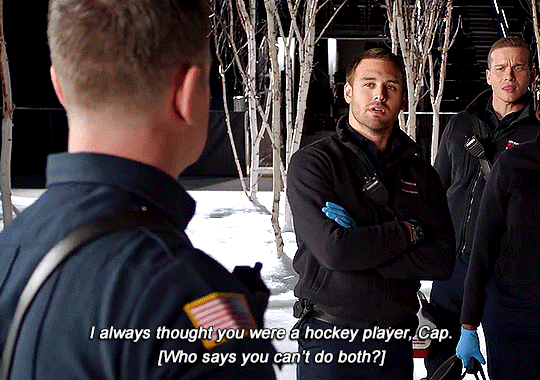

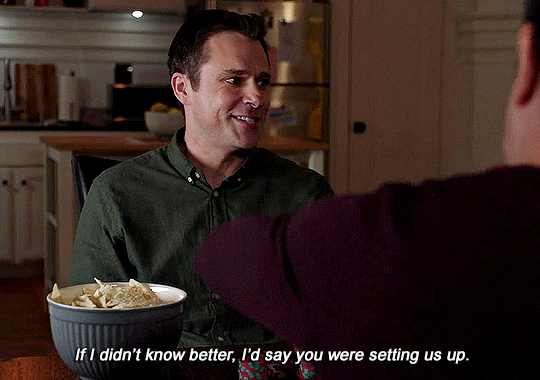

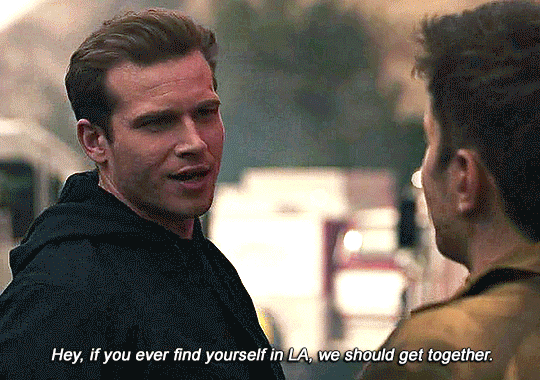
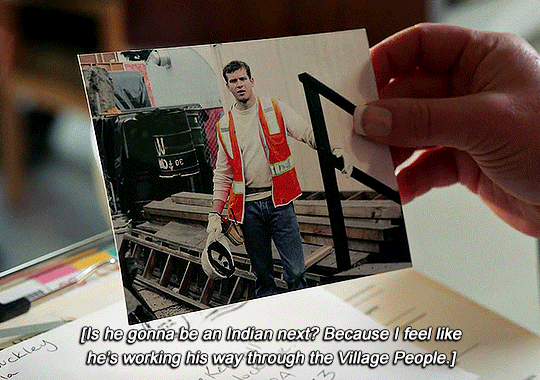

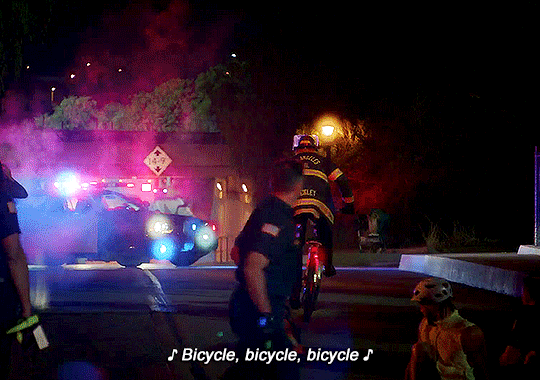


baby, bi bi bi
#911#911edit#evan buckley#buddie#this has been in my drafts for months bc i'm the slowest gif maker in the world and bad at finishing things (wanted to get it done before#s7 oops) but it's even more apt now ig even though i've seen like 6 other versions of it out there already. oh well here's mine#(and bonus i got to include those last two gifs so it worked out)#sorry again that the lone star one is such shit quality i literally can't find a hq version of that episode idk what to tell you#there are things missing from this but i just wanna post it before next episode and i need to go to bed i have to work tomorrow bye (bi bi)#beets.gif
1K notes
·
View notes
Text
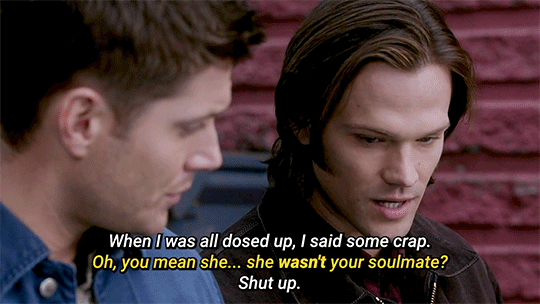

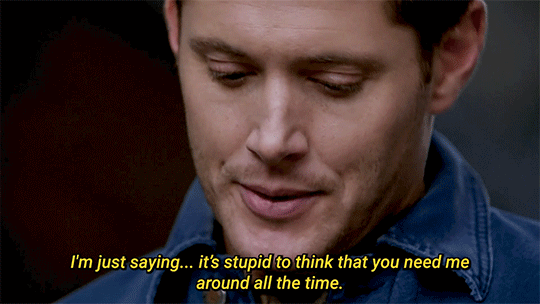
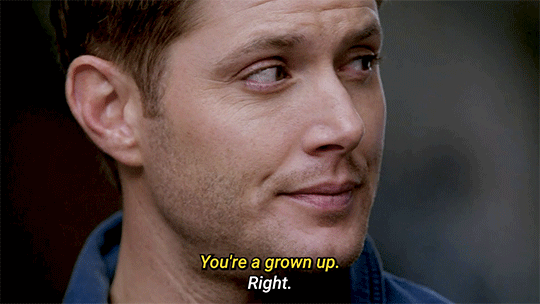




supernatural s7e8 season seven, time for a wedding! (w. andrew dabb, daniel loflin)
never change, boys
be still my beating heart part 11 of ∞
#supernatural#spn 7x08#sam and dean#spn gifs#sam winchester#dean winchester#samdeanheartsquish#spngifs#mygifs#i hate this episode so of course there's a little interaction here at the end that lives rent free in my mind#the way they're both like yeah. you don't need me to take care of you anymore. and they're both miserable about it#circling back the post in this series from 15x17 where sam says how dean protecting him is the only thing in the world he could count on#in the script draft on superwiki this scene is pretty different. it's shorter and it doesn't have sam being upset by the concept too#which is very interesting. and i'm very glad they changed it to this#this is in the time period where things were VERY orange so i tried to color correct it pretty heavily#which on my phone looks like i went a little too far but i think it looks okay on my computer#which i know has more accurate color rendering so. even though that's probably not what most people will see#but who knows. i don't know what the coloring is like on non-pixel phones
148 notes
·
View notes
Text
Eighteen year old Steve Harrington gets arrested for vandalism.
Nineteen year old Eddie Munson gets picked up for smoking weed.
Thankfully, both are picked up by Chief Hopper, who pulls enough strings so they can serve their time via community service volunteering for The Big Brother Big Sister Program.
Dustin's a mild-to-moderate level genius eleven year old. He and his mom are new to town and he's having a hard time making friends after his dad left them. Based on similar likes and interests, he's paired with Eddie.
Max is an eleven year old spit-fire with a strong distaste for authority. Her mom uprooted her from California to live with a step father who drinks and an older brother who loathes her. Based on general attitude problems and unwillingness to cooperate with every other Big she's been assigned, she's paired with Steve.
When the organization hosts social hour once a week, Dustin always goes looking for Max. She's annoyed by him, but she's annoyed by everyone. So when she meets El and the boys, Max makes sure to drag Dustin along with her.
Steve can't stand Eddie. Not only is Steve struggling to wrangle Max into liking him (or even just listening when he talks) but he's forced to deal with Eddie the more their kids spend time together. The guy's a prick, just a huge, judgmental asshole with a superiority complex a mile wide. He's practically perfect for Dustin.
Eddie resents everything about Steve. Eddie's constantly on the verge of a sensory melt down every second he spends with Dustin, and every moment with The Party means more time with the ex-jock, wannabe has-been, who gets away with whatever he wants because of daddy's pretty silver spoon in his mouth. No wonder Max has an attitude problem.
#do I have an actual idea for a plot?? nope#but is this an accurate portrayal of the Big Brother Big Sister program??? definitely probably not#I just love the idea of everyone being little delinquents#<- just found this in my drafts from six months ago??#like damn ok tell me more op#except im op with the memory of a goldfish#steddie#steve harrington#eddie munson#dustin henderson#max mayfield#steve and max are my favorite thing
244 notes
·
View notes
Text
This is inspired by @aflamboyanceofflamingos post about Tim choosing to publicly hate Robin as Tim Drake, cause to love or hate someone is the best way to hide a secret identity.
I started thinking about Tim coming into contact with his teammates as a civilian and Tim using this as an opportunity to take out all the grievances he has for his team in a way, that 1) Won't cause tension and fights. And 2) let him get away with being a petty arsehole, cause it's not like superheros can just go and beat up random civilians.
And well... my hand slipped.
--- You Can't Spell Spite Without Timothy Jackson Drake ---
The amount of times YJ comes across Tim Drake in the wild would be concerning if Tim didn't stalk them as often as his busy schedule allows (which turns out to be quite often). The Beta tube in the Batcave and another secret Beta tube in the bowls of Wayne enterprise's Francisco building allows Tim easy and direct access whenever he so desires.
And well, Tim never did grow out of his stalking phase.
It would be comical - if it wasn't maddening - how often they don't realise he's there. Most of the time he's stalking trailing a member of the team he's not trying to hide his presence, it wouldn't make sense for him to, not as Tim Drake.
The team have a tally board that sits in the common room, it's at 85.
85.
His team's situational awareness is absolutely appalling. 85, they've noticed him only 85 of the hundreds of times he's followed them around?
He complains to Dick about it, a lot. He's hoping Dick will give him some tips on how to beat situational awareness into his teammates thick skulls. He was the leader of the Titans, so he has to have something!
Dick - like the asshole he secretly is - just laughs at him.
He asks Cassie about it once. Why they don't find it concerning that they encounter Tim Drake: famous for being the civilian who 'beat Robin in a fight' every other week?
"I mean, You're usually right about these sorts of things, Rob. If you don't think Drakes an issue, then we trust you."
Tim can't figure out whether to feel warm and giddy at the fact that they apparently trust him, or to be annoyed at the fact that they follow after him like sheep. Not even doing their own research and recon (Cassie probably did. Kon and Bart? Yeah, hell would have a better chance at freezing over).
The first time was a coincidence. Tim had needed some space (from Bruce. From his deadlines. From his own mind...) and ended up wondering the streets of San Francisco with no real destination in mind.
An impulse turn led him onto the boardwalk and from there right to Superboy.
It was a bright and sunny day in Fran and Kon was glowing. Literally, because of the sun and figuratively from pride after he stopped a would-be pick pocket-er from pick pocketing an elderly lady.
He shouldn't. He knows he shouldn't, not when the team know of Tim Drake, know his face and all about how he hates Robin and makes it his whole personality. Not when the only thing that stops them putting Tim Drake on Baby Super villain watch is Tims general blasé attitude about, well... himself.
But is it oh, so tempting.
Especially because the month before, Kon had accidentally smashed Tim's favourite coffee mug in a series of event's (involving a yoga ball, shearing scissors, laser vision and a will from God himself) so convoluted that Tim was convinced it had been orchestrated for a solid week.
Was it a cheap mug from Kmart? Yes, but it's the principle of the matter!
As Tim’s left shoe impacts the side of Superboys face, a sense of manic glee overtakes him. Tim takes special care to seer this memory of Superboy getting hit in the head with Tim's shoe and the stupid face he makes as the ratty converse collides with his cheek, into his brain.
It's not much, but it's justice all the same for his once beloved mug.
Tim... might just be a tad sleep-deprived.
Superboy startles and lets out a frantic “Shit!” Assuming he’s being attacked by a surprise enemy (the kind that isn’t just civilians throwing shoes) he looks around, taking stock of his surroundings and looking for any immediate threats before glancing down at the shoe and visibly doing a double take.
His face is blank as he stares - undoubtably confused - at the shoe. A second later he's lifting his gaze, following the direction the show came from and staring right at Tim.
Tim, who (like an idiot) is still, for some reason, positioned how he was when he threw the shoe - arm outstretched and leg back to brace himself.
There is absolutely no way he wasn't the one who threw the shoe. If the stance didn't give it away, then him having one shoe (that shoe being a near identical ratty rad converse) probably did.
“What?” Superboy asks. He looks befuddled. A little amused, but mostly just confused. He's got a small, polite smile on his face that just reeks of Clark Kent's influence. Kon is obviously trying to model himself off of Superman - specifically Superman's polite and approachable "Grandma pinching worthy" vibe and not his fashion choices, since he's still got the leather jacket and sunglasses.
Tim makes a mental note to tell Kon that he has a really expressive face. Tim is literally reading all his emotions in 4K. They should probably work on that, it could be a liability in the field.
Tim briefly considers playing dumb and acting like it wasn’t him that threw the shoe, before dismissing that idea, Kon can be clueless at times, but he’s not a complete idiot.
So instead, he says, “that was a very open-ended question.”
And well, it was.
At the look Superboy gives him, he elaborates, “What, when said in that context, could mean literally anything! Like, ‘what was the purpose of that?’ ‘What’s your name, so I can in-prison you’ ‘What shoe size was that?’ Seriously, dude, be more specific!”
Superboy’s befuddlement takes a sudden nosedive to incredulity. “Okay, fine. Why did you throw a shoe at me?”
“Cause you work with Robin.” He says simply. He'd say 'justice' but then he'd sound like batman and like, thanks but no thanks.
“Cause I- what? You physically assaulted me with a shoe because I work on the same team as Robin?”
Tim, personally, thinks assault is a strong word to use for this situation, but he’s glad that at least some of his lessons on the proper terms and vocabulary are paying off.
He nods, cause that is indeed what he just did, he crosses his arms across his chest, and stares Superboy down.
Superboy who, looks like he’s regretting everything that led him to this moment. Tim relishes in that for just a little too long to be healthy. Probably.
Tim doesn’t really care. He told Kon (as Robin) that he’d regret breaking Tim’s favourite mug (accident or not, he's still not over it.) yeah, this might not be how either of them envisioned it, but Tim thinks this might just be better than beating Kon up as Robin in their next team training session. What better way to get someone back than to publicly humiliate them in front of all their peers? Shame he can't do that anymore.
Eh, who is he kidding? He’s still going to do that anyway.
“You’re only gonna throw one?” Superboy has a look on his face that’s similar to the one Bruce gets when he’s decided to give up and play along with the crazy. The one where he'll smile and nod, slowly inching out of the room, as Duke and Damian (There has truly never been a more terrifying duo) explain to him in vivid detail how they're going to use psychological warfare to make a shitty teacher at their school resign.
“Yes.” Why’d he throw both his shoes? He’d have no shoes!
“… Right. Why did you throw this one?”
All these questions!
“I like that one the least,” he shrugs, and it's true, the converse on his right foot has a little bi flag that Steph sewed into it back when they were dating. A throw pillow was the closest thing in reach at the time, so he sewed a little pan flag on it for her (he later did one on the breast pocket of one of her denim jackets).
“You are so freakin’ weird, dude! You throw a shoe at me! Because I work with Robin!”
Uh, yeah, we've already established that.
“How did you even get it off that fast!”
To be Honest, Tim is also surprised at how fast he was able to get his shoe off. One second he’s looking at Superboy the next he’s lobbing a shoe at his thick head.
Instead of saying any of that, Tim channels his inner Janet Drake, sticking his nose into the air and scoffing like Kon is the literal gum stuck on the sole of his shoe.
Kon, - because he’s no longer Superboy, he’s too fired up to hold onto the mask - shakes his head. It’s mocking, when he says, “You must be really shitty at throwing a punch if you had to resort to throwing shoes.”
Tim shrugs, “Well, I woulda thrown a fist, but you’re not worth a fist.”
Kon is silent and doing an amazing impression of a blobfish.
Tim turns and struts away before Kon has the chance to come up with a rebuttal, or just decides to punch him in the face.
He’ll grab his shoe later, after Kon leaves.
The basted incinerated his shoe.
#Original content? From Me?!#I genuinely had so much fun writing this#I'm gonna haf-ta make more parts to this#Help guys! My Aus slang in encroaching on my vocabulary!#I keep shortening everything with an a#haf-ta#ya#gonna#being the main culprits -_-#tim drake#Tim Drake is a menace#You can't spell spite without timothy jackson drake#idc if you hate my draft tittle#I love it and i'm making it a thing#Superboy#connor kent#kon el superboy#Robin#robin tim drake#Red robin#?#Who else?#cassie sandsmark#bart allen#young justice#young just us#YJ#the core four#bruce wayne#dc comics
687 notes
·
View notes
Text
EXTREMELY CURSED THOUGHT

has anyone thought of making this one of vox's fantasy radiostatic dreams
part of me wants to redraw it. part of me wonders if it's already been done.
#osrs.txt#I'll answer asks when I have more stable wifi but for now that I don’t have this cursed thing from my drafts#I probably wouldn't have time to actually draw though cause I'm on a trip#radiostatic#staticradio#onewaybroadcast#sorry. I'm sorry#hazbin vox#hazbin hotel vox#vox#hazbin alastor#hazbin hotel alastor#alastor
676 notes
·
View notes
Text
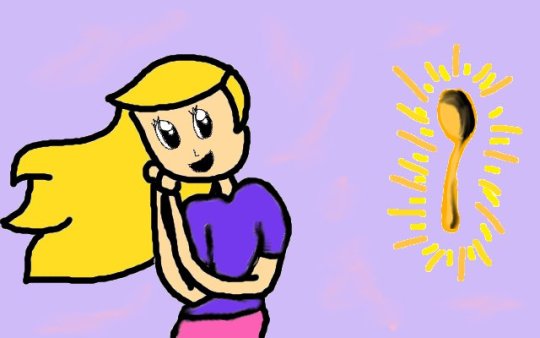
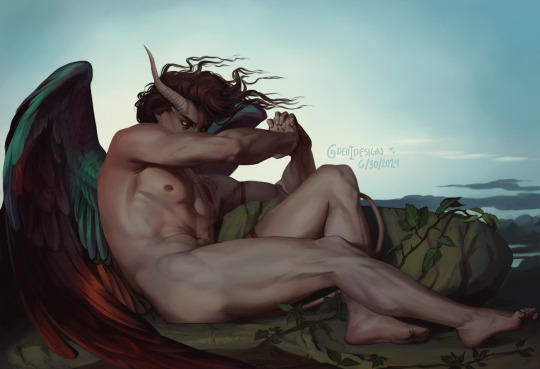
One of my first digital pieces (2010) versus one of my recent ones (2024)
We all start somewhere!
#picked these cause they're in a similar pose lol. i mean not at all. but sort of... more than my other art at least...#oh fuck im so tired im saving this to drafts and coming back later#my anxiety meds wipe me the fuck out so im trying not to take them in the day#and they're like legit borderline a sleeping med for me. i take one and in 30 mins im OUT.#so I'm. i mean i was already only taking 1-2 in the day and then 2-3 at night#anyways it makes me sad when people say they dont have an artistic bone in their body#and especially when they say they could never draw like me :(#dont put yourself down to lift me up! i don't want my art to be used for you to be mean to yourself!!!#lots of experiences of people comparing themselves to me and being mean to themself...#feels bad. it's okay if you're slow it's okay to be learning it's okay!!!#I'm me and you're you and we're here to learn from each other. i just wanna hang out..#y'know what I'm just gonna post without saying anything i WILL forget I made a draft#i have so many things i intend to post and then forget#it's a wonder I post anything#i only do it when i get bored. and run out of stuff to scroll through#like whelp. guess if i want a post I have to make one myself.#also the second one is really good idc that it's a study i still drew it#art growth#this was in 2010 btw#i started highschool in 2011#I've grown a lot and you can too.#also I've never really been one to dislike my old art. like idk I was trying... if it's bad I just won't look at it whatever#like i wouldn't be mean to someone else who made that so i don't get a free pass to be mean just cause it's to me#man my thoughts are bungled. okay sleep time#if my phone made typos you didn't see it
251 notes
·
View notes
Text
Grey
Steve Harrington x fem!reader
Synopsis: Steve gets a wake up call from yall's daughter
Contents: talks of aging, kids being kids, references to smut but nothing explicit
Steve groans as his consciousness comes to. Something is hitting his face. Someone. Repeatedly.
Steve squints his bleary eyes open as a hand smacks him in the jaw again. A small smile appears on his face even though his jaw stings from the impact. "Morning," Steve's voice is still thick with sleep as he turns to look into brown eyes barely peeking over the edge of the bed.
A quiet voice repeats back ,"Morning," to Steve before arms reach up over the edge of the bed to try and grasp something. Small hands grab the blanket and tug it off of him slightly as the child attempts to climb up. At two and half, Amelia Joy Harrington can barely see above the edge of her parents' bed, let alone get on it.
Steve hoists Amelia up and sits her on his stomach. Steve winces as Amelia scrambles, a stray foot hitting his thigh precariously close to his crotch. Arms are thrown around his neck in a hug as Amelia lays her head against her dad's chest.
Steve feels like his heart could burst out of his chest from the joy he is feeling. A hug from his baby? The best way to wake up in the morning. Who cares if his jaw is still stinging and probably red, his little girl loves him.
Steve sighs in contentment. Steve holds his daughter close until she starts to fidget and wiggle. Amelia sits up and throws her hands in the air. "Happy Birthday!" She whispers excitedly, except she has no concept of how quiet a whisper should actually be and says it in a much too loud voice.
"What?" Steve asks, hand hovering near Amelia's side in case she slips. Amelia's eyebrows furrow as she pouts at him, a look that is an exact copy of you. Her arms slowly lower as she stares at Steve. "Happy Birthday. You old." Amelia pouts at him.
Steve blinks at Amelia in confusion but nods his head. First off, rude, he isn't that old. Steve isn't sure where she gets her unfiltered, blunt commentary (it absolutely isn't him). Second, it absolutely isn't his birthday. Not even close.
"Why uh...why is it my birthday?" Steve asks, unsure if Amelia fully understands the concept. Not sure if he can explain the idea of a birthday to a two (and a half) year old. "Grey." Amelia declares giving Steve whiplash. Before Steve can speak, Amelia points at the comforter," Blue." Steve smiles," Yes, blue."
Amelia points to her shirt," Green." Steve nods. Amelia taps under Steve's eye, lashes brushing against her finger causing him to close it. Steve hopes she doesn't attempt to actually poke his eye.
"Brown." Amelia declares. "Thats right." Steve grins, his girl is so smart. Amelia points to his temple," Grey." "That's ri- what?! No!" Steve's mouth drops open as Amelia giggles. "Uncle Dustbin says grey is old. Birthday makes old. Happy Birthday!"
The creak of the loose floorboard in the hall notifies Steve of your approach. You peek into the doorway of the room, seeing your two favorite people. One looking aghast and the other giggling at her father's reaction.
"What's going on in here?" You ask, leaning against the doorway. "Grey. Birthday." Amelia announces, like it explains everything. And it does in her little mind.
You hum in response, looking at your husband who seems lost for words. Amelia slides off of Steve and off the bed, Steve guiding her so her feet land on the ground absent-mindedly. He would never let her fall or get hurt. Or you.
Amelia half walks half dances in your direction. A prance in her step, she stops in front of you and grabs your hands. "It's daddy's birthday," She says before headbutting your leg. You chuckle and pat her head as she dances out of the room, in her own little world.
"You lying to my kid again?" You ask once Amelia is gone. Steve sputters as he sits up," I did not- our kid- did not lie." "Uh-huh, sure," you say sarcastically. Steve rolls his eyes at you as he gets up out of bed.
Steve stretches as he rocks on his feet, back cracking, before strolling over to you. "Good morning," Steve mumbles, hand landing on your hip. You hum back as he leans in and kisses you. Soft. Slow. Sweet. Leaving you longing for more as he pulls back.
"Love you," Steve says, fingers running along the waistband of your pants. "I love you too," you want to melt into him. Curl up in his arms and stay in this moment. Let the love and adoration fill the air around you.
"Do I look old?" Steve is the first to break the silence. Your brow furrows in confusion," huh?" "Amelia she," Steve huffs out a laugh," said I have grey hair." You chuckle as you bring a hand up, fingers threading through his hair," You have some but its nice." "Its nice huh?" "Makes you look distinguished. Handsome." You bite your lip and look up at him.
Steve knows that look. Knows it well. It's the look you gave him the first time you moved past just making out. The same look you gave him on your first anniversary. The same look you wore on your wedding night. The same look you gave before Amelia was conceived.
Steve can't help the smirk that spreads across his face. If getting old gives him that look, well, he won't complain.
"What about me?" You ask, batting your lashes. "Beautiful," Steve kisses your cheek," Gorgeous," he kisses the corner of your lips. He continues to alternate between kissing all over your face and praising you.
"My love," Steve whispers before kissing you softly on the lips. You sigh into the kiss, one hand tangling in his hair, the other trying to pull him closer.
A loud crash from the living room has you two pulling back from the sweet moment you stole. "What was that?" You call down the hall. "Nothing!" Amelia yells back, making you sigh but smile. Steve can't help but grin too. His life was a little hectic dealing with a rambunctious child, but he wouldn't trade it for the world. And he thinks, if life is like this, he can manage getting old with you. He wouldn't want it any other way.
#Steve whines to Robin later who just sits there laughing until she cries#Until he points out she's aged too because she has laugh lines from smiling and then she spirals just a bit#He has to hold her hand and tell her its a good thing and she goes on a rant about anti-aging and its harder for women then men#How there's all this extra pressure and Steve is aghast like he isnt dumb he knew there was but he never heard it all verbalized#He comes home and kisses you and gets on his knees and tells you he loves you#He then begs you to let him show you how much he loves you wanting nothing more then to use his tongue on you#I mean why would you not let him#And when you lay in bed cuddling after he thinks again he doesn't mind aging if he's doing it with you#You wake up abruptly in the middle of the night and startle him awake#“Oh my God Amelia is going to go to high school and get a boyfriend” you whine#Steve just mutters an oh God and immediately starts thinking if it would be TOO much to have the nail bat when he speaks to said boyfriend#You both think about it for a long time meanwhile Amelia is asleep in her room with drool running out of her mouth hugging a stuffed animal#Anyways Steve nation we up??? This has been drafted for awhile but not posted but I am inspired#And I saw this and went oh yeah post that#So here it is...for u...on this fine Friday early morning#Jade is talking#steve harrington x reader#Steve harrington x you#Steve Harrington x y/n#Steve Harrington/you#Steve Harrington/reader#steve harrington x female!reader
194 notes
·
View notes
Note
Share your thoughts on MegaSound? It was one of my first Transformers ships and even though it's not a rarepair or anything it's oddly less popular than I'd expect, and I don't see a lot of analysis of what their relationship is actually like in various canons
I'd love to! Yeah, finding out it's not as popular as I thought was surprising. With Soundwave often depicted as loyal to Megatron, I really would've thought it'd be more popular than it is. You're definitely right about there being a lack of analyses on their relationship, so I think I'll eventually make a post analyzing their relationship in various canons. For this post I'll be going over how I see MegaSound (and from what parts of canon I derive it from) and sharing thoughts about its (lack of) popularity/prevalence.
Here I'll note the basis of canon I ship them from across various continuities where they have a positive relationship*:
Megatron likes monologuing in Soundwave's presence and talking with him (Dreamwave Generation 1 (2002) #4, Megatron Origin #4, IDW Robots in Disguise (2012) #22, Prime). Considering Soundwave's continued steadfast loyalty, I'd reckon he likes hearing him talk/plan.
Soundwave is Megatron's confidant (War Within #2, Prime, IDW Robots in Disguise (2012) #17, IDW 2019)
The both care for each other's continued functioning (Soundwave does so consistently in loyalist depictions, and for Megatron it depends on the continuity/writer but is often true of him too (though, Soundwave doesn't get injured often); [specifics cited later in this post])
Soundwave's loyalty even extends to when Megatron loses his marbles (WFC: Kingdom E03, Galvatron in Sunbow G1 S3E14 & Headmasters E02 & E04), but his loyalty does not extend to Megatron defecting from the Decepticons (IDW Dark Cybertron, EarthSpark) due to Soundwave's loyalty to the Decepticon Cause.
Dreamwave Transformers: More Than Meets The Eye #6 Soundwave's character bio written from Megatron's perspective expressing his uncertainty of whether he can risk lending his trust and friendship to Soundwave is one of my favorite things with them.
(*this mostly excludes where Soundwave's characterized as a self-serving opportunist and where Megatron treats him as just another subordinate)
My MegaSound Thoughts
(Preface: Inspiration taken from all over, but classic Decepticon Cause and they're both as evil as typical. I ship them in various canons but here I describe a broad overview of ways I interpret this pairing and what aspects I'm interested in. I tried to avoid citing Soundwave's self-serving opportunistic depictions for the most part, but he often has a lot of character I like in them xD.)
For me their ship is built upon their longstanding mutual trust, respect, and reliability; especially compounded with the fact many of their comrades' loyalty is prone to wavering from time to time (whereas Soundwave has continuously stuck by his side). I also like to focus on Soundwave's staunch loyalty to and belief in Megatron and the Cause he embodies — and, importantly, Megatron's recognition of this.
For Megatron I like to think about what valuing someone in such a way means to a tyrant whose sights are set on control, destruction, and personal power.
I think Soundwave's competence, strength, devotion, skills, and intelligence would all be appealing to Megatron. Soundwave, with said qualities, has made himself indispensable to the Decepticons, and therefore indispensable to Megatron himself.
Perhaps one reason Megatron is drawn to Soundwave would be for the steadfast security he provides (compared to the unreliability/treachery of others).
Though, with Megatron being surrounded by the infighting/treachery of Decepticons, I think it would be natural for him to sometimes be uncertain of whether his closeness with Soundwave is as safe/secure as it seems (inspired by Dreamwave More Than Meets The Eye #6's Soundwave bio written from Megatron's perspective) due to how much sensitive information and vulnerability Soundwave's been trusted with. But any such feared betrayal would not come to pass, because Soundwave sides with him, including in his times of need.
All I've written so far assumes a wishy-washy loyalty in Megatron's other followers; for where he has other loyalists, perhaps Soundwave is just one of his oldest followers (Sunbow G1 "War Dawn", Dreamwave G1 (2004) #10, IDW 2019, Prime S1E26) and his loyalty is ultimately tried and true.
Time and time again, Soundwave is shown to care about Megatron's continued functioning/well-being (Sunbow G1 "MTMTE, Part 3" [Soundwave warning Megatron of Starscream's attack], Transformers: The Movie, War Within #6, Prime, All Hail Megatron #13, Fall of Cybertron [saddened at Megatron's death & later rebuilds him], Retribution ["And if it turned out he couldn’t save Megatron, Soundwave knew what his duty demanded. / Vengeance on everybody involved."], Transformers vs. The Terminator #2 [Soundwave repairs Megatron's optic], WFC: Kingdom E03).
In cases where Soundwave has been injured/killed, this has often been true of Megatron too (Transformers (2009) #17 [this & AHM #13 were both written by Costa — making this mutual care of each other's continued functioning intentional, I presume], Prime S2E14, Headmasters E02 & E04 if including Galvatron, WFC: Kingdom E03 [where Dinobot downs Soundwave then Megatron comes swinging]).
For Soundwave I first want to detail the basis of his character as I think it's important to recognize his beliefs and personality. His personality and how much is shown ultimately depends on the continuity and writer; and varies depending on if the writer favors the Marvel UK G1 Soundwave (self-serving opportunist) or the Sunbow G1 Soundwave (loyalist) depiction.
Soundwave believes himself to be superior to others (to other lifeforms, to Autobots, and even to fellow Decepticons) and it's not just a cool line, but an actual sentiment/belief he holds (Transformers: The Movie, Spotlight: Soundwave, Revolutionaries #3, Skybound Transformers #7, Animated S1E10 Sound and Fury), and it is continuously embodied in his actions and loyalty to the Decepticon Cause (conquest & domination). Following this, Megatron's ideals of Decepticon superiority must appeal to Soundwave greatly — as a result, their vision of the future and values are quite similar.
Soundwave has (well, if the continuity depicts it) a negative reputation among other Decepticons, with others actually being aware of his monitoring and subsequent reporting to Megatron (Prime S1E13 [among other episodes], implied in Robots in Disguise (2012) #11... I think, Earth Wars: Sea Phantom: "[...] The walls have audio receptors, if you know what I mean." / Coelagon: "Yeah, Soundwave has the place wired for sound.", Sunbow G1 "Countdown to Extinction" & "The Golden Lagoon"). Instead of such a reputation being a negative for Soundwave, it is something he has intentionally fostered for indirect power and control over the other Decepticons; and by doing this he's made Megatron hold him in high esteem (Prime, Dreamwave More Than Meets the Eye #6 [Soundwave's Bio], All Hail Megatron #10) and positioned himself securely in the Decepticon's upper ranks.
In line with his beliefs of superiority, Soundwave personality-wise is quite confident and secure. This is also true of his standing with Megatron (for reasons described above).
Following Soundwave's colder depictions, perhaps one of the bots he finds himself the most "warm" to or emotionally responsive to is Megatron, even if he may not express this the same way most others might (but I'd think Megatron would understand it, due to his perceptiveness and having known him a long time).
With Soundwave generally not being much of a conversationalist, I'd think Megatron easily makes up for this with all his talking and monologuing (they are so [eloquent] yapper x listener to me). Given Soundwave's continued loyalty, I'd like to think he quite likes hearing Megatron's voice and his ideas/plans; for Megatron I'd like to think he enjoys an intelligent and receptive audience and finds it in Soundwave (who gets to hear his words/plans unfiltered from the manipulative rhetoric he gives others), and likes Soundwave's encouragement and amoral pragmatism. As Megatron's confidant, Soundwave gets to hear him at his most honest (Dreamwave War Within #2, IDW Primacy #4, Prime).
I like to think about how them both being evil impacts what activities they find enjoyable. Moments in various canons that come to mind: All Hail Megatron #1 (where Megatron's like "Soundwave, if you will?" then >:D when Soundwave diverts the missiles), Prime S2E22 ("You should have seen Optimus Prime's face when his precious Star Saber shattered like glass [...]"), and Retribution Ch. 9 (where Soundwave really wants to show Megatron a playback of him and Ravage interrogating/torturing Decepticon traitor Axer for information that Megatron wanted). Could sharing the joy of violence be an evil love language xD?
For angst I think there's a lot of potential based in EarthSpark or Headmasters (the same is true of IDW 2005, though I won't be expanding on it here).
For EarthSpark there's S1E08 0:24 & 2:30 plus a sentence from the guidebook: "Soundwave believes that anyone who defects from the Decepticons is a traitor, and he considers Megatron the worst traitor of all!" Based on their interactions and dialogue (S1E08 Decoy "Don't make this personal, Soundwave." "It already is."), it's apparent that they used to be close before Megatron switched sides; and Soundwave's feelings impact Megatron a lot! Soundwave's recording calling out his hypocrisy invokes such a rage in him; and Soundwave calling him a traitor disheartens him, making him lower his cannon (and he would've been blasted had Optimus not intervened)!
For Headmasters Soundwave/Soundblaster would witness how much Galvatron differs from Megatron — how insane he's become, but also how distant he's become from him. (The Headmasters E04 & E10)
In general, I think there could be angst found in Megatron's favorite trope: getting put out of commission for a duration of time. Or, that trope could be bestowed upon Soundwave for a change xD (like in Transformers (2009) #17). Exploring the consequences of Megatron's hubris or lust for power could be fun too.
Favorite Moments in Various Canons
Dreamwave More Than Meets The Eye #6 Soundwave's bio:
[From the Datatracks of Megatron, Decepticon Leader] What is more valuable to a commander, loyalty or reliability? Loyalty is a luxury, but reliability is a necessity for effective military operations. Soundwave exemplifies the latter while projecting as much as the former as realistically possible. He is an indispensable lieutenant and a fierce warrior, with seemingly unshakeable loyalty to me and our cause. When I enter into combat with Soundwave beside me, I am assured that he will perform his role unerringly. I am, however, well aware of his blackmailing of other Decepticons and the fearsome retribution he takes on any who attempt cross him, safe in the knowledge that he is virtually untouchable in his current position. His flaunting of his role have caused many to turn against him, which has only strengthened his need for my favor and implicit protection. Thus far, Soundwave has been utterly faithful to my commands and risked his own life on my behalf several times. But is he only biding his time until his own power base is secure enough? Many great commanders have been undone by trust and friendship in the past… can I afford to extend these to even my most capable solider?
Dreamwave War Within #6 & Generation 1 (2004) #10 (Also, throughout Dreamwave's run Soundwave is actually visibly by Megatron's side, which I think is a pretty neat detail)



All Hail Megatron #13 & Transformers (2007) #17



I enjoyed their dynamic in IDW 2019 because of how visibly instrumental Soundwave is to the Decepticon's rise, and his subsequent importance to Megatron. (#5) (#16) (#26)



Soundwave's sheer nonchalance at getting yelled at/scolded by Megatron who was breaking things in rage (#11) was so funny to me... Soundwave knows he's too important.

In Fall of Cybertron (37:15) Soundwave reaches out sadly to Megatron's hand sticking out from beneath rubble (thanks to Megatron's hubris getting himself scrapped)

In WFC: Kingdom E03 Soundwave is concerned about Megatron and tries to caution/advise him, but it goes unheeded.

The Transformers (2003) PS2 Japan: nearly every time Soundwave and Megatron talk... ["Lord Megatron, I'm glad you're unharmed!], ["This is how a subordinate should behave!"], ["No, don't apologize. You are not to blame"], ["..."], ["high price"], [deferring to Soundwave's judgement]
I haven't actually watched Robots in Disguise (2015), but its portrayal of Soundwave's devoutness is pretty cool... specifically in S3E21 Collateral Damage what he says at the timestamp 5:49:
Soundwave: "[...] when [the transgalactic beacon generator is] activated at the highest point in the city it would transmit a signal strong enough to summon Megatron back to Earth." Sideswipe: "[...] but that much radiation won't just call Megatron it'll—" Soundwave: "—devastate the city, then spread to eradicate all life on Earth. Incidental collateral damage."
I don't know how to describe how much I love the coldness/callousness in his inconsideration for an entire planet, all for the sole purpose of getting Megatron back.
(Lack of) Popularity
I've thought about the reasons for the ship's lack of popularity/prevalence. The one that jumps out the most to me is that there's a lack of in-depth exploration into their relationship in canon despite their constant proximity and importance to each other — as in, plots hardly ever test/strain/strengthen their relationship (to elaborate, there's rarely tension between them, and when there is it's minor and carries no meaningful weight).
Well, IDW 2005 did do some things with their relationship, but it didn't feel as in-depth as other relationships because their backstory together (which occurred in phase 1 with Soundwave's self-serving opportunistic characterization) was recontextualized/retconned for phase 2's Decepticon Cause of equality origin and was there to ultimately serve their subsequent (and separate) becoming betterish arcs relevant to that origin, and then they never got a proper reconciliation together; post-Dark Cybertron Soundwave continued to keep Megatron in mind, whereas Megatron (iirc) doesn't ever think about him in any noteworthy way. (Elaboration/analysis of this will be in whenever I make that analysis post, although trying to analyze IDW 2005 is kind of a headache for me.)
Rarely does Megatron communicate how he feels about Soundwave to him beyond his usefulness/function (e.g. Megatron praising Soundwave in Prime and Sunbow G1). There's IDW Robots in Disguise (2012) #22 ("Ours, Soundwave. The world shall be ours." is a cool line that expresses Megatron wanting to conquer Cybertron with Soundwave, but this scene is a retcon & flashback — it only serves phase 2 Soundwave's arc in the present).
That's not to say Megatron never expresses any thoughts/feelings about Soundwave, of course (various episodes of Prime, Headmasters E02 ["Soundwave! NGHAAAHHHHH" — Galvatron after witnessing him explode], probably some moments from The Transformers (2003) PS2 Japan).
The most explicit of Megatron recognizing Soundwave's importance to him I can think of off of the top of my head is Primacy #2.

Obviously with this post, I think a lot about their relationship can be inferred from the way they interact and talk regardless of how much or little Megatron directly expresses to him. (With this post being for the purpose of shipping, all I mention here is through a shipping potential lens xD).
Perhaps another reason for this ship's lack of popularity, related to the first, is maybe Soundwave is broadly thought of as just a loyalist without knowledge of his other qualities and so people don't think it's interesting? (I could say more on this, but I'll end this post here.)
#megasound#megawave#megatron x soundwave#transformers#maccadam#maccadams#a megasound manifesto i guess xD#vynx.analysis#i've never tried explaining my thoughts on a ship before this was hard xD#(the decepticon cause being originally “for equality” thing isnt my cup of tea / idw1 phase 2's retcons pain me)#(i rly rly cant get over how nonsensical the “originally for equality” thing is... so sorry to anyone who liked that aspect of IDW1 xD)#writing this post reminded me that i actually have a billion thoughts on soundwave in general... is soundwave analyzed much?#with prime being so popular i didn't feel the need to elaborate on it here#ive seen megasound shippers like a line from Exodus abt their gladiator days but i didnt mention it bc i dont care much for it#mostly bc exodus soundwave is a self-serving opportunist and exodus megatron actually even dislikes the cassettes (“minicons”)#i definitely forgot to cite several sunbow g1 episodes... oops#i have a lot more thoughts and ideas for megasound stuff but i need to free this from drafts
133 notes
·
View notes
Text

emoji set request for @nosleepforaiba !
using 😻👏🏾💃🏾
(pls click for better quality its getting crunched to hell)
#cliff png#only one i got also so i just went ahead and rendered the whole thing unnecessarily 👍🏽#got stuck thinking of a bg nd just used a random sunset pic i took a while back hopefully it doesnt look too off#also watermarking for once#and mainly bc im killing my art blog 👍🏽 kinda#using this to announce that also#not deleting it completely but im reverting it back to just an archive like it initially was since i post my art more often on here again#so ill be doing that throughout the week. most stuff there is p old and idc for it anymore#and ive got all my files anyways so it'll be empty soon#i might leave anything from the past year or so in there? otherwise im killin it#ok kinda not satisfied w/ it now that its been hours since i stuck this in my drafts#but i refuse to open it back up so
72 notes
·
View notes
Text






"It was..."
(lore rambling below)
Although I have gone back and forth regarding the whole part, Sen's parents are a whole different approach from Joule's, while his' got all negligent towards the only hatchling they did not care for; hers' tried all possible ways (known and not) to start a family of their own. They wanted something of their own and wanted it to be of both.
Ancient dragons can't breed with each other, but they made it work and while she did not look like it she shares so much more of both of them than what can be assumed at first glance.
Many attempts went into bringing Sen into the world, many restless nights, fears and dying eggs. So when their latest attempt bore it's first success the couple were more than elated and grateful for the small hatchling that crawled off that nest but Solan (auraboa) couldn't help the small bitter disappointment in their chest as they held the baby close and saw a slightly off aether hatchling no different from their mate; Karras (aether) who noticed the beaten pride off the auraboa who spent their time and care to their child disproportionately more than him and who had the highest hopes to see it come through, tried to alleviate their feelings by being by their side and making light out of their first (and hopefully not last) born. It helped Solan but nevertheless their ego still hurt. And all future attempts drove that wrench deeper in their soul. And all that came after...
As for Sen herself, it would be helpful if she could recall at least that. If she knew what it meant. but alas it means nothing to her, it may never be nothing but trouble for her. if anything it's what brought her to were she is now and that is complicated, to say the least.
#flight rising#my art#Sen#ft. her parents (1/2 rip or smth)#“they did ”a mingle“ but it was for love. it always was#but that won't stop you from feeling like a trophy of their own creation more than their child. right?"#i've had this thing in drafts for so long but it somehow is still canon to her lore yay#>there is a reason why the deities allowed their future creations a more permissive breeding path :)
127 notes
·
View notes
Text
I’ve grown to appreciate the aus where Shen Yuan enters the story as “Shen Yuan” - same name, probably similar face, generally able to interact with PIDW as himself and change the story through his added presence. I like the sense of “if only you’d been here, things might have been better the first time around” of it all.
And I was thinking, it’s a funny coincidence in that scenario that someone named Shen Yuan gets put into… another Shen Yuan. What are the chances? What a weird twist of fate that Airplane would pick out the name that his most dedicated critic could slip into seamlessly.
What about a version where it’s not coincidence at all?
Airplane goes to school with a kid named Shen Yuan. He’s prickly and hard to approach and a little intense, but Airplane is persistent. In fairness, Airplane is relentless - and maybe it’s a good thing that they end up being friends, because they’re a little too much for anyone else to handle. They balance each other out. They’re the “weird kids” in class and they’re okay with that, because even when they don’t have any words for it, they know they’re not like their classmates, not really. That’s okay; they don’t want to be.
Recesses and breaks are consumed with the elaborate stories that Airplane wants to tell, and all the holes Shen Yuan pokes into them. It’s not mean-spirited, though, even though Shen Yuan isn’t the kind to temper his words. It’s passionate. He cares about those stories the way Airplane cares about them, and it can’t be mistaken for anything else when they lean together conspiratorially across the lunchroom table. They’ve both got notebooks filled with details and characters and monsters. Shen Yuan’s practically got a whole bestiary sketched out in wobbly childhood attempts at art, entries fervently scrawled beside them. Airplane prattles out plots nonstop, always with the promise of shining eyes and being asked “what happens next?”
They come up with a whole world together. Airplane’s going to write about it someday. Shen Yuan is going to read every word.
Shen Yuan misses school. Shen Yuan starts missing school a lot.
Airplane goes to the hospital room instead. He doesn’t think to worry, because Shen Yuan is okay - that’s what he says. He looks okay, and he’s a kid, and it doesn’t feel real that anything bad should happen to a kid. He doesn’t think to worry. He doesn’t think to say goodbye.
It’s one of the older Shen brothers who catches him on the way up to the room one day, in the hallway just outside - snaps at him to go the fuck home, and when Airplane hesitates, pushes him into the elevator and tells him not to come back. “Tells” is a generous way to describe the way the words come out - a growl, a hiss, the sound an animal would make when a hand got too close to a wound.
(It’s not fair to name a villain after him, even if the name never really comes up in the story. He wasn’t trying to be mean. He’d lost a brother minutes before, and he was getting his brother’s friend out of the way so he didn’t have to… see. It isn’t fair, but then, none of it is fair.)
Death feels very real after that.
The notebooks get shoved into a closet, and it’s not until Airplane’s moving out and one falls on him from a high shelf that he thinks about it again. He’s written things, lots of things, but nothing as ambitious as this - nothing as important. It could be good, he considers. He’d promised. Shen Yuan wanted to read it.
The problem was that no one else does, not for a long time, not until Airplane has whittled himself and his art into a corner and into such an unfamiliar shape that he has to wonder how it’s still his own face he sees in the mirror. He has to eat. He has to pay rent. Shen Yuan would yell at him, but Shen Yuan isn’t there to yell at him, and who cares. Who cares if it could have been better? The people who actually are here love it, and it’s paying his bills, and sometimes stories don’t go the way they’re supposed to and the world is fucking unfair. It doesn’t matter.
(It does. But he shoves that thought away along with styrofoam cups and soda bottles to the bottom of a garbage bag.)
Authors are not gods and their power is limited, but Airplane exercises just a sliver of what he’s been granted and gifts an inconsequential sort of immortality. He thinks about making him a rogue cultivator, maybe the kind that goes around documenting beasts and compiling his findings. He thinks about making him someone too powerful for death to touch, or too important to threaten, but when Airplane looks at the world he crafted and everything that’s become of it, it feels like the kindest thing he can do for Shen Yuan is a childhood where he’s loved, and a death that’s peaceful. What does it say about that world, that he’d kill off his best friend too early again instead of making him live there?
(The best writing he ever does is the only, shining moment of humanity that his scum villain ever displays: a lament about death that comes too early, about a brother gone too soon. The commenters praise him. The commenters flatter over how real the emotions feel. The commenters don’t get any response from Airplane on that chapter.)
Death is incredibly real when it comes for him too early, too, still hovering over his keyboard with the story technically finished and incredibly incomplete. Airplane could tell himself that’s because the written version can never be the version in the writer’s head, always shifting and with every possibility still on the table, but he knows better than that. The System knows better than that, with its condescending message about “improving” his writing and “closing plot holes” and “achieving his original vision”...
…and he’s a child again. He’s a child in his own story, he’s Shang Qinghua now without the benefit yet of a peak or cultivation or anything, and maybe he’s a little bitter, and a little scared, and…
And Shen Yuan - with longer hair, with robes, with a couple of older kids watching him from across the street, but undeniably the prickly little boy who used to sit down imperiously across from him and tell him everything that was wrong with the chuck of writing that had been handed to him last period, but with that smile that said he was only invested because he knew it could be better and they were going to make it better - marches up to him with a fire in his eyes and a frown that warns of a coming tirade.
“You told it wrong,” is the first thing he says.
Shang Qinghua wants to ask how him how he’s here, how this is possible, or maybe laugh because, yeah - yeah, Shen Yuan has no goddamn idea how wrong he got absolutely everything.
(Shang Qinghua wants to say “I missed you” and “why did you leave so soon” but he’s here now. He’s right here.)
“I know,” he says instead. “I’m sorry. It all kind of… spiraled out of control.”
Shen Yuan frowns, but then it dissipates the way it always does, and his eyes shine with ideas the way they always used to. “That’s okay,” he relents, grabbing for his hand. “We’ll fix it. We’ll make it what it was supposed to be.”
#scum villain self saving system#svsss#shang qinghua#shen yuan#airplane shooting towards the sky#this got more into the feelings than i thought it would#surprising no one#anyway just! childhood friends au! as a reason for a shen yuan insert!#obviously he is not going to die as a child in this version#shang qinghua would not have that nope not again#also pls consider poor shen jiu who looks at this child that shen yuan has picked out for a best friend like '...really? that one??'#(it's up to you if he's shen yuan's actual brother from his first life)#(put there's a part of me that likes the idea that shen jiu also gets a second chance to spend more time with his brother)#a second chance for them to grow up together!#THAT SAID#RIP TO SHANG QINGHUA#WHEN SHEN YUAN IS OLD ENOUGH TO LEARN ABOUT ALL THE PAPAPA#the LOOKS shang qinghua is going to get#anyway here have a thing because I CANNOT add another au to my drafts thank you and goodbyyyyye
953 notes
·
View notes
Text


Zzzzzzzz
#— the honored one#good night 😴#aomi will talk about lots of things tmrw#probably pregnancy#<- hopefully#i’ve had an idea since last week yet i haven’t yet written about it#satoru’s body hair maybe#your arguments as a couple too#him trying to feed his daughter baby food#or him coming home from work and how his kids bombard him immediately#maybe you and satoru being embarrassing parents and overbearing#domestic scenarios in general i guess#kidtoru taking interest in a servant’s daughter etc#SO MANY IDEAS#AND MORE IN MY DRAFTS#my brain will explode#today was a lazy day for me#i need to lock in
89 notes
·
View notes